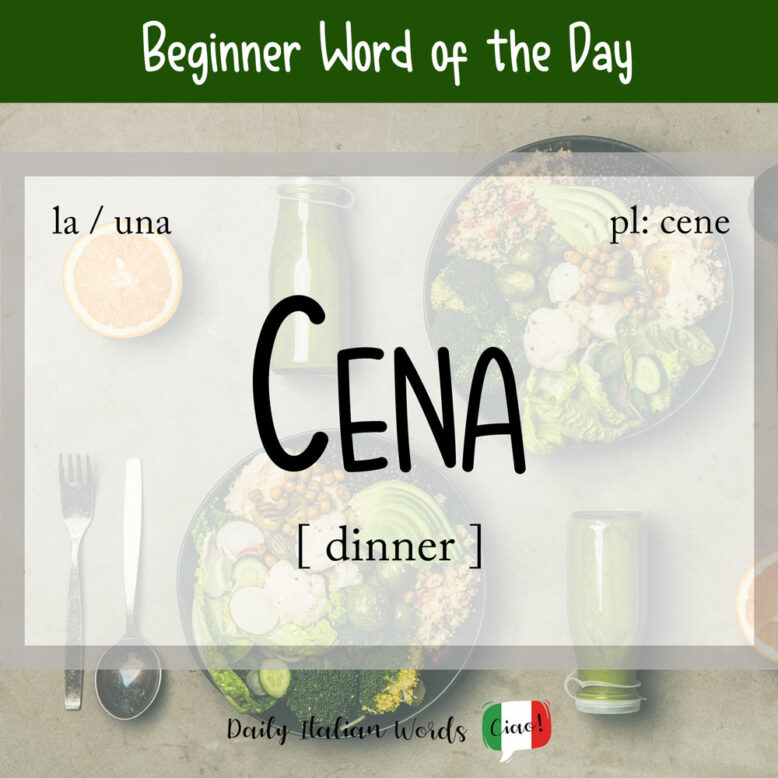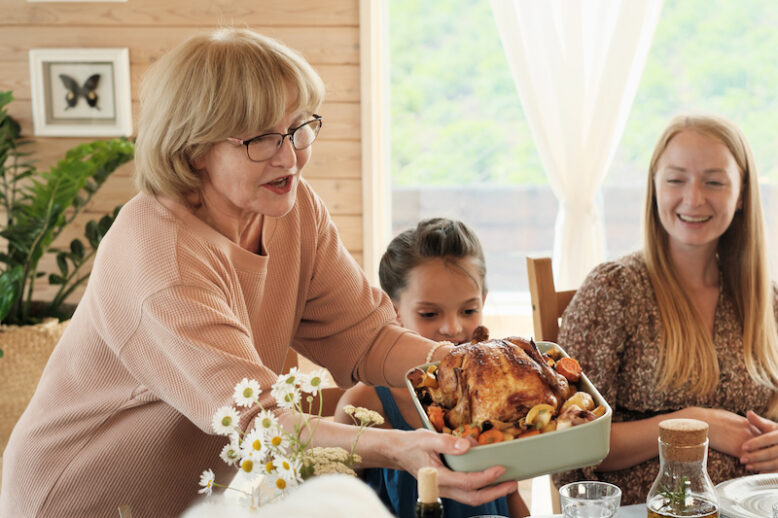Traditionally, in Italy, people have four meals a day: colazione (breakfast), pranzo (lunch), merenda (afternoon snack) and cena (dinner or supper).

By adding the suffix -one onto the end of cena, you get the word cenone meaning big supper. Cenare is the verb meaning to have supper or to dine whereas dinnertime translates as ora di cena.
Stasera torno a casa per cenare con la famiglia.
Tonight I’m going home to have dinner with the family.

If you want to say that the dinner is ready, you can say la cena è pronta, or è pronto in tavola (lit. it’s ready on the table). To your kids, you can also call out A tavola!
Below are some useful verbs you might use in conjunction with cena:
- preparare la cena = prepare dinner
- organizzare una cena = organise a dinner (party)
- invitare (qualcuno) a cena = invite (someone) to dinner
- portare (qualcuno) a cena = take (someone) out to dinner
- servire la cena = to serve dinner
Ho cominciato a preparare la cena alle 5.
I started preparing the dinner at 5 o’clock.
The word apericena is a portmanteau of the words aperitivo (drinks and nibbles) and cena. Whereas aperitivi traditionally consist of a drink along with a few olives and nuts, apericene are a proper replacement for dinner due to the amount of food on offer. Because they are so cheap – usually around €10 for a decent meal or buffet and a drink – they are extremely popular amongst university students on a budget.
Heather Broster is a graduate with honours in linguistics from the University of Western Ontario. She is an aspiring polyglot, proficient in English and Italian, as well as Japanese, Welsh, and French to varying degrees of fluency. Originally from Toronto, Heather has resided in various countries, notably Italy for a period of six years. Her primary focus lies in the fields of language acquisition, education, and bilingual instruction.


